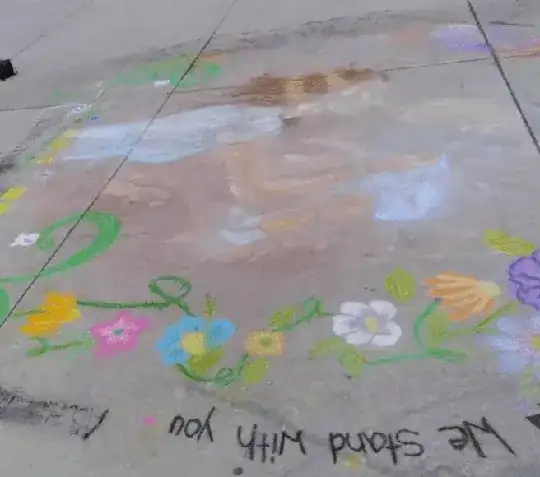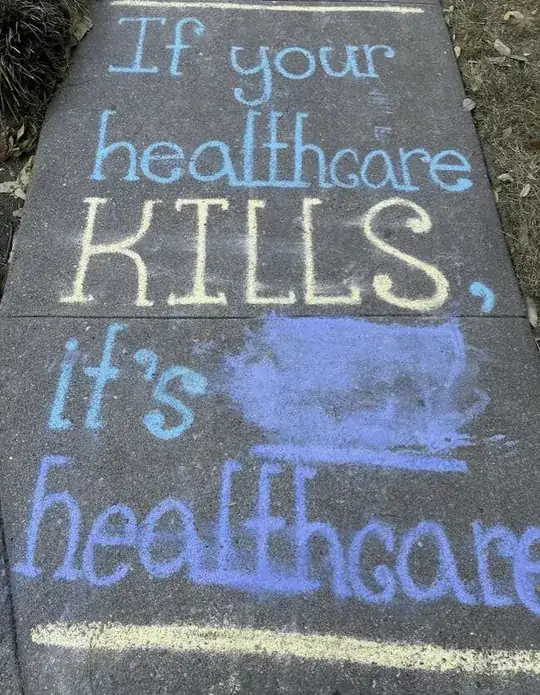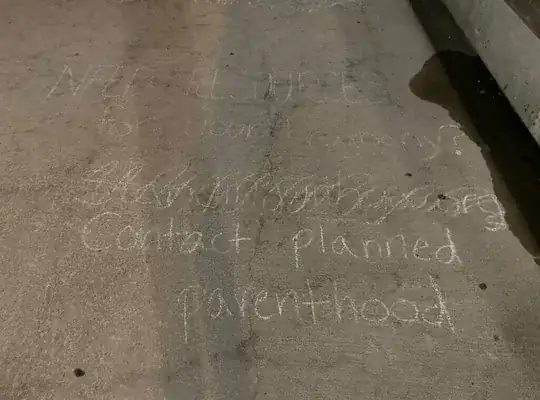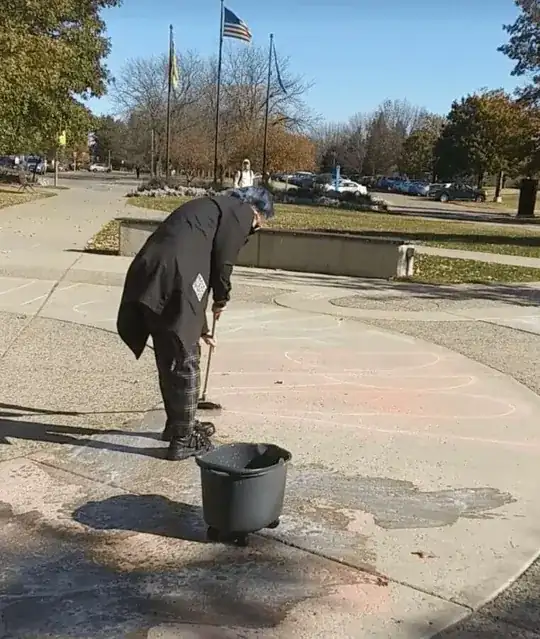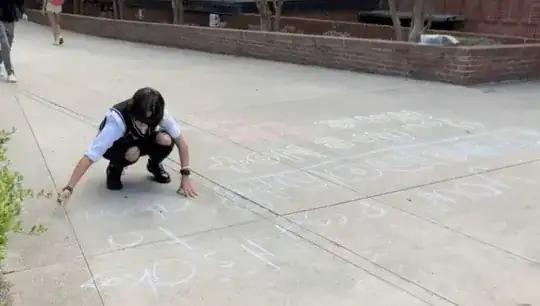I assume the underlying premise is that public spaces are open fora for any form of political expression, which is protected by the First Amendment.
Under the First Amendment, you have the right to express your viewpoint in a public forum. The government can reasonably restrict such expressions to some extent, thus violent riots can be prohibited, and permanent vandalism with spray paint can be banned. Chalk can even be banned. Any bans must, however, be viewpoint-neutral.
Government protection of public expressions must also be viewpoint-neutral, therefore the police cannot elect to de-police just one side of an issue (based on viewpoint, as opposed to different conduct of participants). Therefore they must protect protesters coming from one side of an issue from vigilantes from the other side, or protect neither side – the government cannot favor a particular viewpoint in law enforcement.
Chalk is a commonly used expressive medium, and municipalities have massive discretion to ignore it and wait for the next rain to clean it up, or else they may actively intervene to stop and remove such expressions – in a viewpoint neutral fashion. Furthermore, a municipality may rightfully tolerate voluntary civilian clean-up in the aftermath of a political outburst.
The (remote) possibility exists that the municipality is not viewpoint-neutral in protecting public expressions – preventing vigilante cleanups by one side while encouraging vigilante cleanups by the other side, and that would violate the First Amendment. The First Amendment does not require individuals to be viewpoint-neutral, only governments.
You might imagine that the drawer could file a lawsuit for damages. A possible scenario would be if the municipality set up a controlled and protected space for artistic expressions, somebody – with permission to create the work – labors over an elaborate display, and a vandal trashes it. The vandal could be sued. The difference between that and the above scenario is that you have warring ideologies, one involving the application of chalk without permission and the other involving the removal of chalk without permission. The government will not favor just one viewpoint by awarding damages for an unsanctioned expressive action, over another unsanctioned expressive action.
